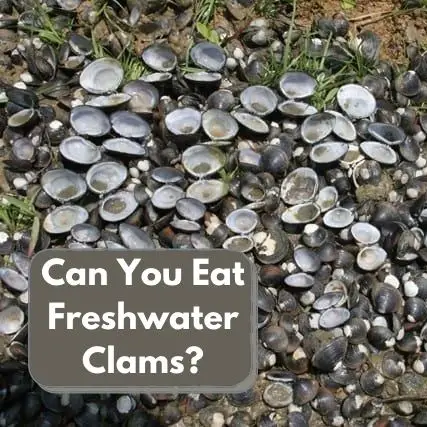Sometimes when camping or backpacking, you’ll start to run low on food or you may just want to test out your survival skills. Freshwater clams are easy to find and catch, and relatively simple to cook… but can you eat freshwater clams?
Freshwater clams are edible but are a bit chewy and don’t taste very good. Clams from lakes and rivers are edible as long as the water you’re getting them from is clear and free of toxins.
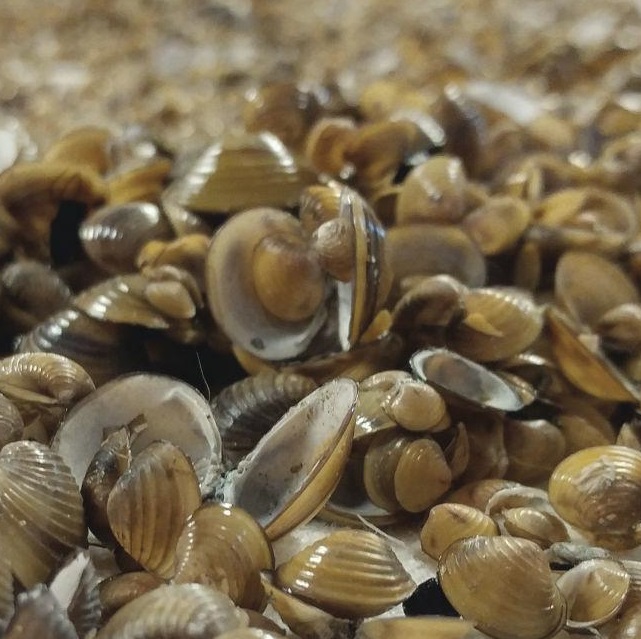
Can You Eat Freshwater Clams?
Yes, you can eat a freshwater clam, but it’s important to know what to look out for so you can minimize your risk of food poisoning or other sickness.
We’ll be going over how to identify freshwater clams that are safe to eat, the risks of eating unsafe ones, and how to cook freshwater clams when you’re out in the wilderness.
Are Freshwater Clams Edible? Know What To Look For
Here are the key factors you must pay close attention to when looking to harvest freshwater clams for eating:
Water Quality
Freshwater clams feed by filtering out organisms and pollutants from the water they live in, which improves water quality but also leaves much of those same pollutants in the clams’ tissue.
Pay attention to the quality of the water your freshwater clams are living in, harvesting them only from clear lakes, streams, and rivers that have constant water movement.
Age
When it comes to eating freshwater clams, younger is better than older. This is because the younger a freshwater clam is, the less total pollutants it has filtered through it’s system, leaving it safer to eat (and better tasting).
Alive Vs Dead
Don’t eat dead freshwater clams, as you have no way of knowing how long the clam has been dead for, and you put yourself at risk of consuming high levels of bacteria.
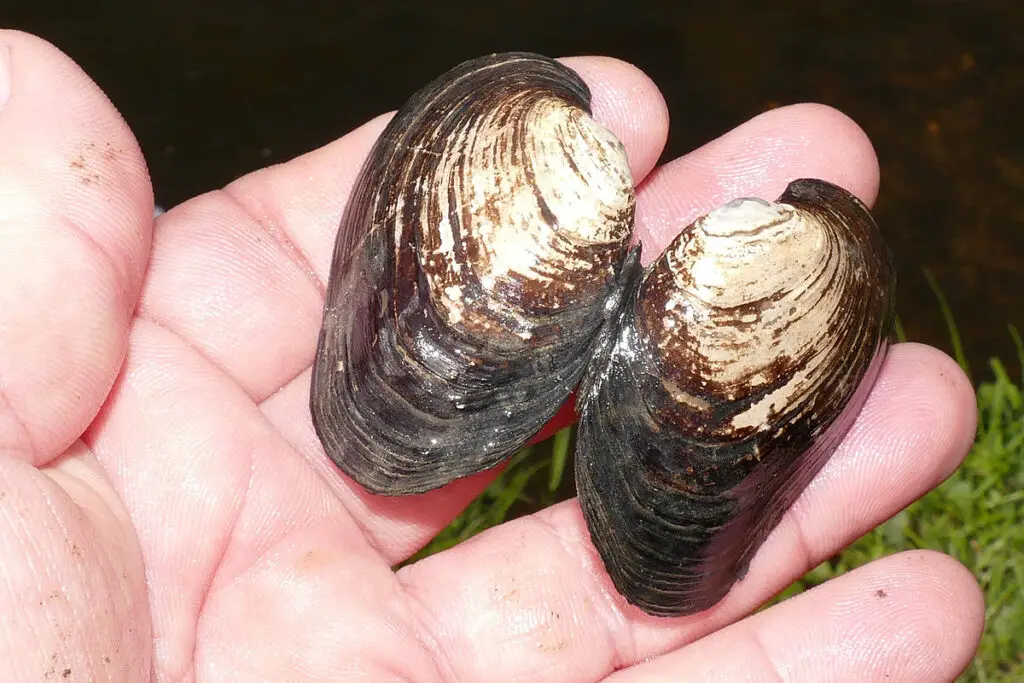
Tips For Finding Freshwater Clams To Eat
Check Out The Water
The quality of water you get your clams from is the most important factor that affects how safe freshwater clams are to eat.
Knowing the general quality and current status of the water is very important, so check online and ask local guides or park rangers for additional help before harvesting.
Understand Local Species & Guidelines
There are many freshwater clam species worldwide, but some may be endangered or on protected lists. Be sure you’re not breaking the law or risking a fine by trying to harvest clams from a lake or river.
Know The Rules
Some areas have total amounts or quotas on how many freshwater clams you can grab, so be aware of these limits before going all out.
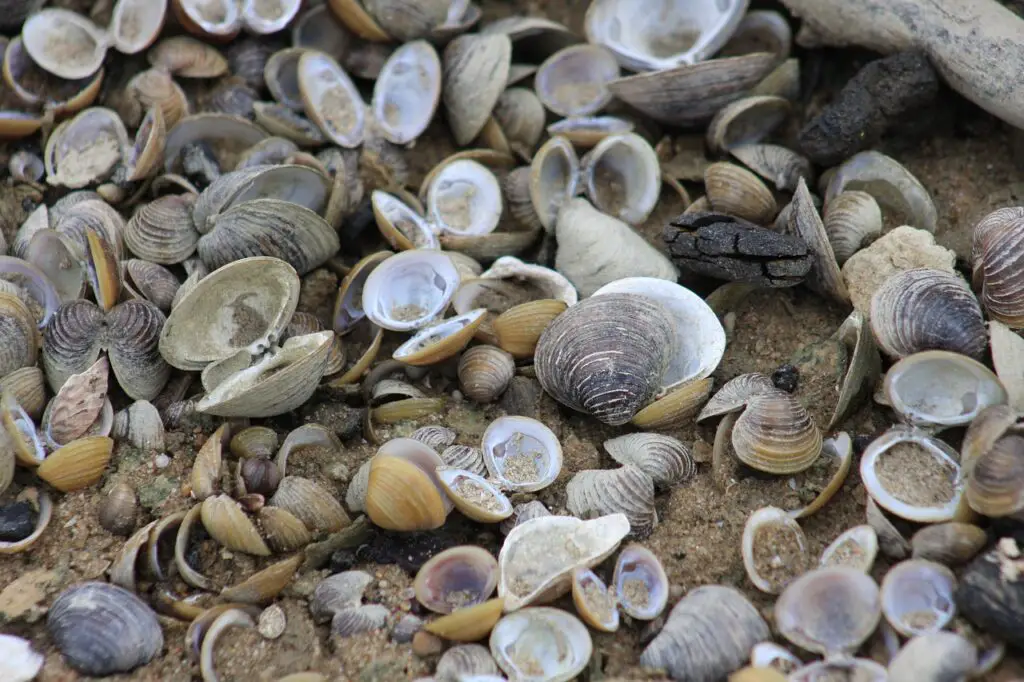
How To Prepare Edible Freshwater Clams For Cooking
Before you can eat freshwater clams, there’s a few steps you’ll need to take to prepare them.
Purging Freshwater Clams
Purging simply means getting rid of any foreign substances or debris like silt or sand from the clams.
Do this by submerging the clams in a bowl or pot of clean water for 30-60 minutes, which will allow them to open up and release matter that is inside them.
Rinse the freshwater clams after purging for good measure – if you find there’s a lot of stuff at the bottom of the bowl, you can repeat the purging process until there’s very little “coming out” of them.
Clean Your Freshwater Clams Before Eating
Hit the outer shell of your clams with a scrub brush or cloth to get rid of any external debris.
Get Rid Of Any Dead Clams
Look for clams that have holes in their shells or shells that are broken, as they’re most likely dead and shouldn’t be eaten.
If your clams are floating or the shells are sealed shut tightly, these are two more signs that you have a dead freshwater clam, so dispose of them.
You can gently tap your freshwater clams with open shells to see if they move a little bit, and if so, they’re alive and edible.
How To Cook Freshwater Clams
Here’s how to cook freshwater clams over a fire:
Heat a large pot of water over medium heat, along with any seasonings like butter or salt if you have them.
Place the clams in the pot and boil them for 8-10 minutes until they open
Remove the freshwater clams from the water
The freshwater clams are now ready to eat
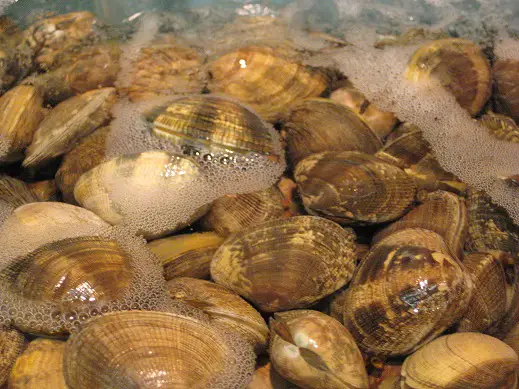
Are Freshwater Clams Good To Eat?
Freshwater clams are more chewy and don’t have the natural salt content that saltwater clams do, any seasonings you can add like salt or pepper will help.
Although they’re safe to eat with precautions, the taste is not the greatest, so you should probably save eating freshwater clams for a survival situation or for the novelty of doing so rather than expecting a gourmet meal from them.
FAQs About Eating Freshwater Clams
Yes, you can eat freshwater clams – just make sure they are alive, properly cleaned, and from a fresh, clean water source.
As long as you harvest your clams from a non-polluted water source, make sure they’re all alive, and cook them properly, you’ll be fine.
Freshwater river clams are edible – just make sure the water is clean, they’re alive, and you properly clean and prepare them before cooking.
You should not eat raw freshwater clams as they can make you sick.
Freshwater clams are more chewy and don’t have the natural salt content that saltwater clams do, any seasonings you can add like salt or pepper will help.

